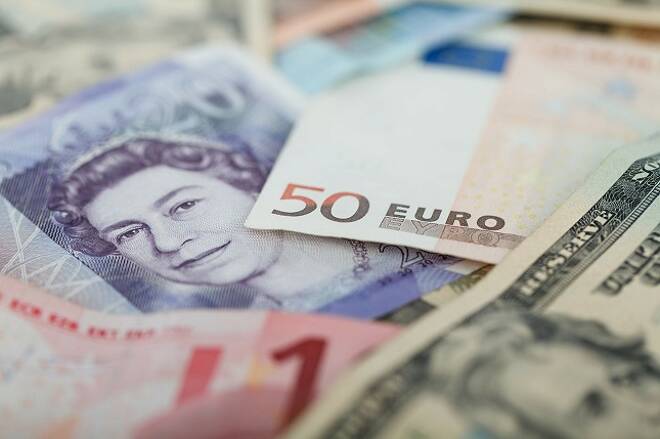Advertisement
Advertisement
Strong Euro and Pound Weigh on Riskier Assets in Europe
By:
European stock markets are heading south. Markets closed narrowly mixed in Asia with Nikkei and ASX slightly higher at the close after the rise in global
European stock markets are heading south. Markets closed narrowly mixed in Asia with Nikkei and ASX slightly higher at the close after the rise in global yields lifted hopes for improved earnings outlooks for financials. Still, the repeat vote for the U.S. tax bill may be a formality, but for some at least it has highlighted Trump’s struggle to push through his reform agenda. U.S. stock futures are moving higher but in Europe the strong EUR and Wednesday’s rise in the pound added to pressure on stock markets and saw the FTSE 100 losing ground so far. With the ECB halting its asset purchases tomorrow for the holiday season liquidity is also drying up across Eurozone markets, which is adding to pressure and the Spanish IBEX is underperforming and down ahead of tomorrow’s regional vote in Catalonia. The latter is bringing political risks back to the foreground amid ongoing political wrangling in Germany and as investors start to fret about Italy’s general election next year. Oil prices are up and the front end Nymex future is trading at USD 57.76 per barrel.
WTI futures are up earlier printing an eight-day high at $57.88. Crude prices are showing a 2.0% week-on-week gain, and a 7.5% advance on the year-to-date. Firmer prices have come after API data showed a bigger than expected 5.2 million barrel decline in U.S. crude inventories in the latest reporting week, to December 15. This has helped offset market expectations for U.S. crude supply to rise to record levels above 10 million barrels per day in the coming months, which roughly match production out of Saudi Arabia and near Russian’s 11 million barrel per day production level.
German Producer Prices Fell Back in November
German November producer price inflation fell back to 2.5% year over year from 2.7% year over year in the previous month, with prices up 0.1% month over month. A slightly lower than anticipated number. Food price inflation decelerated markedly – to 3.4% year over year form 4.2% year over year, which helped to counterbalance an uptick in energy price inflation that saw annual heating prices rising 20.3% year over year. At 2.5% year over year, the rate remains clearly above the ECB’s objective for price stability, although the deceleration in the headline rate will give Draghi something to argue with.
The Eurozone current account surplus narrowed to EUR 30.8 billion in October from EUR 37.8 billion in the previous month. Unadjusted data showed that this is part of a wider trend with the surplus narrowing to EUR 352.0 billion in the 12 months to October from EUR 367.8 billion in the year to October 2016, driven by a narrower trade surplus. More interestingly perhaps, the unadjusted financial account showed a sharp drop in direct and portfolio investment inflows to EUR 423.2 billion in the year to October from EUR 705.2 billion in the 12 months to October last year. There were substantial net outflows in direct investment in debt instruments as well as portfolio investment in equities.
About the Author
David Beckerauthor
David Becker focuses his attention on various consulting and portfolio management activities at Fortuity LLC, where he currently provides oversight for a multimillion-dollar portfolio consisting of commodities, debt, equities, real estate, and more.
Advertisement
